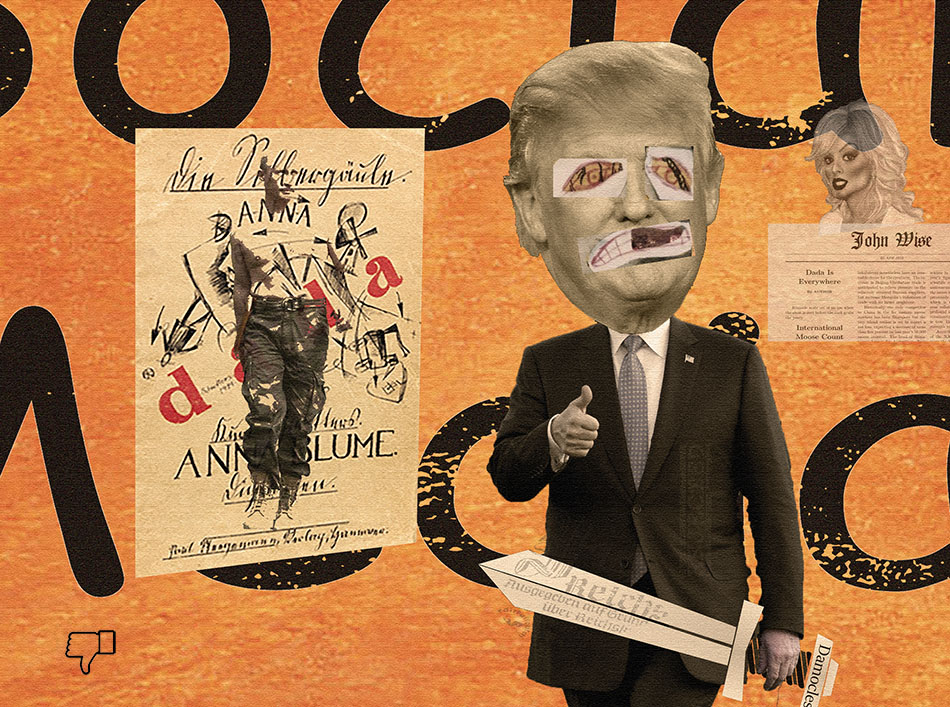
A youth fraught with tension and the insatiable need for novelty propelled me to look to all corners of culture for the landmarks that would direct me to my creative stomping grounds. My mind was a minefield of explosive ideas that the 20th century launched onto the intellectual landscape. Covered in the excrement and entrails of the futurists and surrealists before being lightly dusted in the philosophy of modernity to the awareness of art Deco, pop art, and minimalism, I sought to find some kind of sense of what it meant to be human.
The grinding noise of modernity belched a symphony of agony first described by Luigi Russolo in The Art of Noises, followed by the anguish of Antonin Artaud and his Theater of Cruelty, which, when combined, acted as the dress rehearsal for the squalor brought upon humanity by the fascist propaganda and genocide of a world at war that has mostly stayed with us for the duration of my life. While not on the same scale of focus, the carnage of ghastly horrors with independent actors instead of state actors thrives in our internet age.
I looked to William Burroughs for insight into juxtaposed non-sequiturs as media and most information became a global cut-up. Charles Bukowski and his purple turkey neck collided with all that preceded him and would help forge the die that would manifest the model for a future president. Absurdity was supposed to be the domain of art, but as life is so apt to do, it has imitated art. We started becoming the embodiment of the cartoons of satirist Robert Crumb’s depictions instead of the aesthetic wholesome image Walt Disney would have liked to have modeled us in. One thing is certain, though: we should never have allowed ourselves to become characters in a comic strip.
Looking to complexity in the early days of the personal computer revolution, I was searching for a new technology manifesto that would channel the best of Tristan Tzara to create my own youth art movement in the spirit of Dada. I was ready for more nihilism, and anti-everything was on my agenda.
Nietzsche and Baudrillard were the perfect conduits for my rage against conformity. They knew the idiocy of our idols and icons that were programming us for mass stupidity. The bulwark of the money machine had other designs on the habits of people and preyed upon the laziness of those who would covet an easy path instead of one paved with struggle.
It would take decades before I would start to see the next big wave in creative intellectual meanderings that would illuminate a world not yet invented but just around the corner in our future. The minds of Marshall McLuhan, Max Horkheimer, and Theodor Adorno may have gleaned insight into the role our evolving media culture would play though they didn’t foresee the emergence of a distributed global real-time collaborative information and knowledge machine. The rules of distribution and ownership took a monumental turn with the close of the 20th century.
While the one-dimensional man hasn’t been reduced to ashes yet, the seeds of change have hopefully been planted, though the current socio-cultural landscape would certainly suggest otherwise. From Elon Musk’s Space-X, we learn more about Max Q and the pressures of reaching escape velocity, but who will be the inspiration that will help guide the collective mind of humanity to reach its own Max Q?
The ideas put forth in The Critical Engineering Manifesto lay a partial framework that, when merged with the nascent world of generative algorithms exploring blockchain-birthed truth tables, will, I believe, enable emergent systems to bring about creative swarms of enlightenment. This will effectively be the unveiling of a new language to the adherents of super-complexity.
Currently, fear of artificial intelligence is stymieing a majority of relatively older people by not allowing them to embrace the creeping lingua franca found in the abundance of readily accessible information. The machines that will first benefit from AI, also known as deep learning, will, in turn, share their new capacity for seeing the world differently to educate a new population unafraid and already raised on advanced communication in the ways of super-complexity. Just as a generation stumbled with electronics, cell phones, VCR clocks, and the internet, my own generation will likely fail the transition that is now underway.
Art has nearly always had the effect of alienating those in control bent on maintaining traditions. The situation with our current age is that we’ve been evolving a global mindset that some have started recognizing as maybe being “out of control” and are now trying to stuff the genie back in the bottle. This cannot work, though the violence of trying to fight this change may wreak havoc before the cultural marauders trying to arrest progress are pushed into the background as history has always done.
We are living with the baggage from two centuries of conflict as well as great progress and are about to take a quantum leap forward to throw off the burden of carrying outmoded ideas of a species on the verge of extinction. I do not mean to imply that humanity is on a path of collapse. Instead, I’m suggesting that the intellectual dinosaurs are about to encounter their meteorite. Now is the time to adapt and survive. Embrace the change and get ready for a moment in our evolution that will be as consequential as when humans began to talk and control fire. We are on the verge of a radical pivot – or maybe we are heading for the exit?